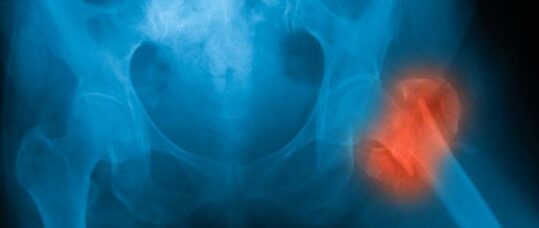Antidepressants linked to increase risk of hip fracture in Alzheimer’s patients

Antidepressant use nearly doubles the risk of hip fracture among people with Alzheimer’s disease in a community setting, according to a new study from Finland.
The findings, published in the International Journal of Geriatric Psychiatry, revealed that the link could be due to sedation, orthostatic hypotension, arrhytmias, hyponatremia and confusion caused by antidepressants.
Related Article: ‘Patients not prisoners’: Palliative care nursing behind bars
“Those adverse effects may lead to falling and then fractures and elderly persons are vulnerable to those adverse effects,” said lead author Sanna Torvinen-Kiiskinen. “However, depressive symptoms themselves are a risk factor for falls.”
The increased risk was highest at the beginning of antidepressant use and remained elevated even four years later. This included all of the most frequently used antidepressant groups: selective serotonin reuptake inhibitors (SSRI drugs), selective noradrenaline reuptake inhibitors (SNRI drugs), and mirtazapine.
Related Article: NHSE confirms dates and eligibility for autumn Covid and flu jabs
The study took place between 2005–2011 in Finland with over 150,000 participants (50,491 with disease and 100,982 without) with a mean age of 80 years.
The follow-up was four years from the date of Alzheimer’s disease diagnosis or a corresponding date for controls.
The paper noted that antidepressants may be used to treat conditions other than depression such as anxiety, neuropathic pain, and insomnia.
Related Article: QICN bids farewell to Dr Crystal Oldman as she retires from CEO role
The researchers’ finding persisted even after adjusting the results for use of other medication increasing the risk of fall, osteoporosis, socioeconomic status, history of psychiatric diseases, and chronic diseases increasing the risk of fall or fracture.

See how our symptom tool can help you make better sense of patient presentations
Click here to search a symptom


Antidepressant use nearly doubles the risk of hip fracture among people with Alzheimers disease in a community setting, according to a new study from Finland.



